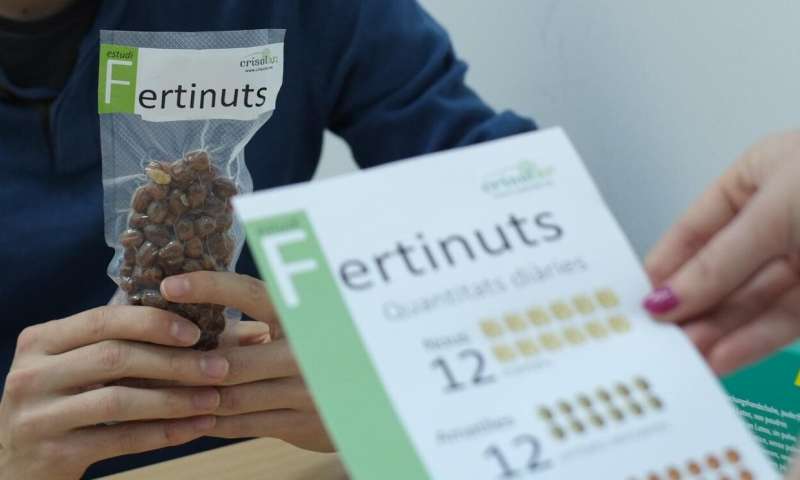
Researchers from the Human Nutrition Unit of the Universitat Rovira i Virgili (Tarragona/Spain) and the Pere Virgili Health Research Institute (IISPV) have found that consuming 60 grams of nuts a day improves sexual function. They have conducted the first nutritional intervention study with healthy participants of reproductive age in order to determine if regular consumption of nuts has any effect on sexual function. The analysis forms part of the FERTINUTS project, which has been created to assess the effects of regularly consuming nuts on the quality of semen.
Sample and results
The prevalence of erectile and sexual dysfunction is thought to affect 2% of men under the age of 40 years, around 52% of men aged 40 to 70 years and more than 85% of men over 80. The risk factors associated with sexual and erectile dysfunction are smoking, excessive alcohol consumption, a lack of physical exercise, stress and an unhealthy diet.
In a previous study, the same research group described how certain nuts (walnuts, hazelnuts and almonds) improved sperm quality, although there were still no studies demonstrating the positive effects of these nuts on sexual function.
Their most recent study was conducted on 83 individuals who were following a western diet (poor in fruit and vegetables and rich in animal fats). The participants were divided into two groups: one group continued to follow their normal western diet over 14 weeks while the other complimented their diet with a daily intake of 60 grams of walnuts, hazelnuts and almonds. At the end of the study period, each individual completed an internationally validated questionnaire known as the IIEF-15 containing 15 questions on sexual function.
The findings show that adding walnuts, hazelnuts and almonds to an unhealthy western diet can improve sexual desire and orgasm quality. The researchers also pointed out that further studies involving more participants are needed to confirm these results and to determine how these benefits arise.
The study was published in the scientific journal Nutrients and was written by the post-doctoral researcher Albert Salas-Huetos (currently working at the University of Utah) in collaboration with the URV’s Human Nutrition Unit and CIBERobn Network ), led by URV professor Jordi Salas-Salvadó.

Leave a Comment